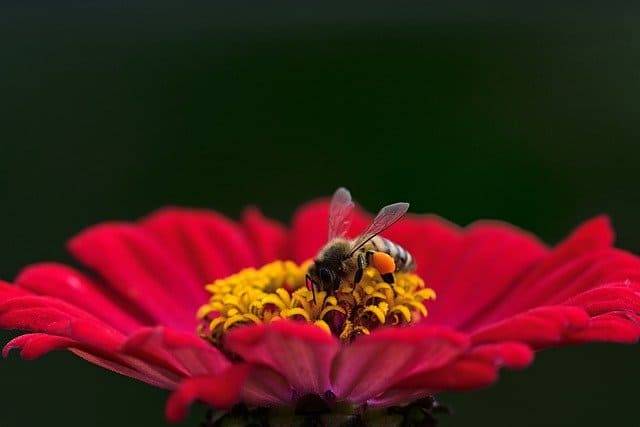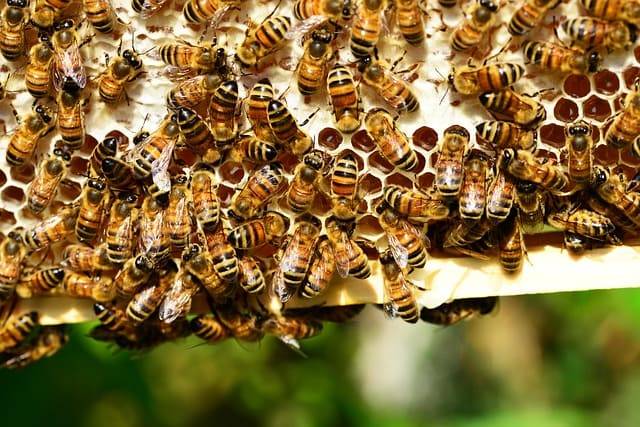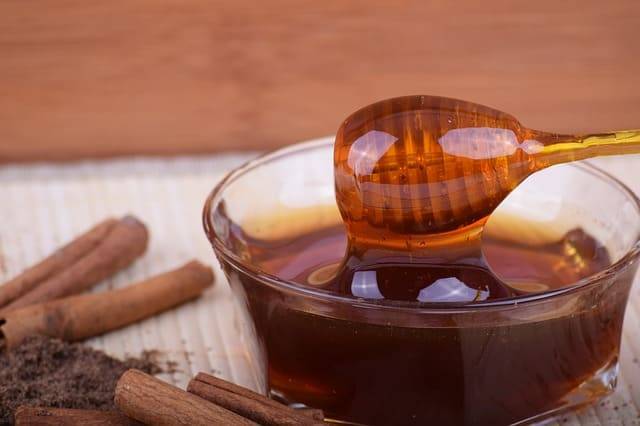If you wonder why vegans don't eat honey, and if it is a food a vegan, you've come to the right place! The fact that honey is one of the foods that respond to the question “what is vegan?”, it is clearly a grey area.
Mainly because the honey is not usually consumed daily, the bees are small animals that we know relatively little, and because at first glance, no animal should die.
In this article, I would like to explain the second way and tell you why the honey is not a food vegan. Come on!
As you will see in the following paragraphs, there are ethical reasons, and ecological, to avoid bee products such as honey and beeswax.
Honey: why vegans don't eat honey?
Honey is the food of bees. Unfortunately, the food of substitution given by the beekeepers, usually sugar syrup, just makes them more susceptible to diseases due to the lack of vital nutrients.
There are also beekeepers who left deliberately the greater part of their production of honey bees. However, as this is not a certainty, vegans simply not honey at all.
Consider the following: bees can make their own food by swallowing and spitting repeatedly on the nectar of flowers, and other plants. Therefore, in general terms, the honey is the vomiting of the bee.
Why the production of honey can be exhausting
The process of extraction of the honey from the hive is very stressful for the bees. 12 worker bees take almost a lifetime to produce a teaspoon of honey that we eat in a second.
Bees are sensitive creatures, intelligent and advanced that can feel emotions such as fear or joy. For this reason, vegans avoid honey for reasons ethical and moral.
Why do we manipulate animals to get honey?
For example, subject a queen bee in a support and the fruitful instrumentally with the sperm of between 8 and 12 drones crushed.
Separate the two wings, for it to remain on the mound upto; the other bees accompany it and also left behind. This prevents the influx of bees in several new colonies.
This will greatly reduce the production of honey in the respective hives, making them uneconomical.
Why use the bees in the mass-rearing?
Why vegans can't eat honey? The word “may” should be replaced by “wants”. Given that veganism is first of all a question of moral values of his own and that the animals are exploited in the production of honey, vegans choose not to consume it.
In our society, the bees are considered primarily as livestock, like cows, pigs and chickens in intensive agriculture ........ Bees are artificially inseminated and bred selectively for our benefit, this reduces their gene pool, and increases your risk of disease.
The disease can also be transmitted to the bees or wild bees.
Why the bees are injured and die?
In beekeeping, moderna, animals are injured or killed constantly. The causes are the bad insulation of the hive, the lack of food and parasites.
Often kill colonies and whole winter, before the cold season, when it's not worth feeding to animals. One method is to spray the hive with gasoline and set it on fire. Others, for example, gas or drown in soapy water.
Therefore, the cruel treatment of animals is also an important factor to vegans do not eat honey or that the honey is not vegan.
The honey is not very healthy
Honey is not vegan nor particularly healthy. It is mainly composed of glucose and fructose and contains calories.
In addition to weight gain, excessive consumption of honey can cause dental problems and an increase in the levels of sugar in the blood.
Apart from its magnesium, calcium, and some other nutrients, honey is not very different from the normal sugar that we consume humans. Therefore, honey is more of a “candy” that a product is “healthy”.
For the availability of alternatives vegetables
The honey can be replaced for the majority of uses of relatively simple way and is consistent with the veganism. Here I have given some examples to make it easier for vegans task to do without the honey.
By putting a few examples...
- Maple syrup
- Syrup of sugar beet
- Agave syrup
- Syrup of dandelion
This selection confirms that we are not addicted to eat honey, not even to your taste. The maple syrup or syrup of agave are two alternatives vegetable especially popular and delicious to choose from.
If you think of any other alternative vegan honey, don't hesitate to write me your ideas.
Why are they important the wild bees for biodiversity?
Hives: why honey is not vegan?
The majority of us know that the populations of honey bees are in decline worldwide, and that this is one of the main drivers of species extinction.
However, this is not the case of the bees farm: their number continues to grow because we want to eat honey.
However, this doesn't help wild bees, on the contrary. The increase in the population of bees threat to all the other populations of wild bees by the spread of diseases, and the competition for nectar and pollen.
It is also a threat to many other species of animals, vegetables, and whole ecosystems due to the consequent reduction in the production of pollination. Therefore, a “save the bees” also means “to save the ecosystems”.
Because bees are living beings and not commodities
Bees are vital to the production of honey and can be purchased online. Looking on eBay and it's yours for less than 30 euros, and even the wings have been clipped. The colonies whole can be found online, you can easily order and can be delivered at your door.
No matter how small the animal, for me it is a sign that humans have gone too far and we need to take a new path. And it is a great reason why all the other vegetarians do not eat honey.
Because the wild bees are vital to human survival
As the population of honey bees increases, the number of wild bees decreases, and the wild bees, unlike the honey bees, are primarily responsible for the pollination and, therefore, the growth of the plants.
We need plants to survive. Therefore, the decline of wild bees threat ultimately our food security and, therefore, our survival and, in general, the continuity of nature, rich in species as we know it and we need to.
Can you help us to share?
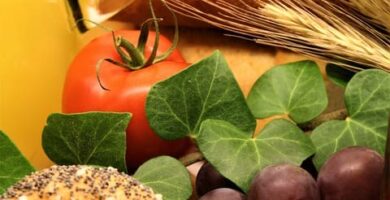
Can Vegans Eat Bread
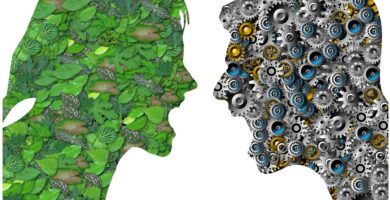
Why do people hate vegans?
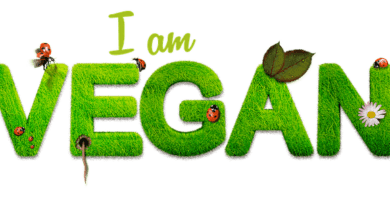
List of Vegan Ingredients
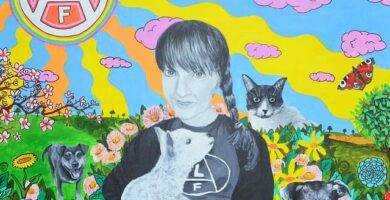
Differences between Vegan and Vegetarian

Is this Vegan?
Iron and Veganism

